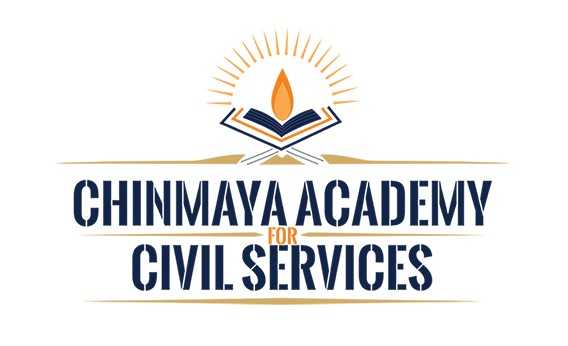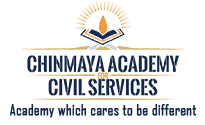The UPSC Civil Services Exam consists of three stages – Prelims, Mains, and Interview. Aspirants must choose an optional subject for the UPSC IAS Mains exam, which plays a crucial role in determining their ranking. Trends indicate that Literature subjects are gaining increasing popularity.
Nepali is an Indo-Aryan language used in several regions of India, including Assam, Sikkim, West Bengal, Bihar, Uttar Pradesh, Uttarakhand, and Himachal Pradesh. It is recognized as one of the official languages of India and is included in the UPSC Mains exam as an optional subject.
In this article, we provide the syllabus for the optional Nepali subject for the civil services examination. After familiarizing themselves with the syllabus, aspirants can refer to the recommended UPSC Nepali Literature Books in the linked article.
The syllabus for Nepali covers the history and evolution of the Nepali language and literature. It includes grammar, folklore, and different literary genres in the language, as well as specific works written in Nepali. The subject is worth 500 marks, split between two papers of 250 marks each.
NEPALI
PAPER-I
(Answers must be written in Nepali)
Section A
1. History of the origin and development of Nepali as one of the new Indo Aryan Languages.
2. Fundamentals of Nepali Grammar and phonology :
(i) Nominal forms and categories :— Gender, Number, Case, Adjectives, Pronouns, Avyayas
(ii) Verbal forms and categories :—Tense, Aspects, Voice, Roots and Fixes
(iii) Nepali Swara and Vyanjana;
3. Major Dialects of Nepali
4. Standardisation and Modernisation of Nepali with special reference to language movements (viz. Halanta Bahiskar, Jharrovad etc.)
5. Teaching of Nepali language in India—Its history and development with special reference to its socio-cultural aspects.
Section B
1. History of Nepali literature with special reference to its development in India.
2. Fundamental concepts and theories of Literature :
Kavya/Sahitya, Kavya Prayojan, Literary genres,Shabda Shakti, Rasa, Alankara, Tragedy, Comedy, Aesthetics,Stylistics.
3. Major literary trends and movements—
Swachchhandatavad, Yatharthavad, Astitwavad,Ayamik Movement Contemporary Nepali writings,Postmodernism.
4. Nepali folklores (the following folk-form only)—Sawai, Jhyaurey, Selo, Sangini, Lahari.
PAPER-II
(Answers must be written in Nepali)
This paper will require first hand reading of the texts prescribed below and questions will be designed to test the candidate’s critical acumen.
Section A
1. Santa Jnandil Das — Udaya Lahari
2. Lekhnath Poudyal — Tarun Tapasi(Vishrams III, V, VI, XII, XV, XVIII only)
3. Agam Sing Giri — Jaleko Pratibimba RoyekoPratidhwani (The following Poems only-Prasawako Chichyahatsanga Byunjheko Ek Raat,Chhorolai, JalekoPratibimba : Royeko Pratidhwani, Hamro Akashmani Pani HunchhaUjyalo, Tihar).
4. Haribhakta Katuwal — Yo Zinadagi Khai Ke Zindagi : (The following poems only-Jeevan : Ek Dristi, Yo Zindagi Khai Ke Zindagi, Akashka Tara Ke Tara, Hamilai Nirdho Nasamjha, Khai Manyata Yahan Atmahutiko Balidan Ko).
5. Balkrishna Sama — Prahlad.
6. Manbahadur Mukhia AndhyaromaBanchneharu (The following One-Act only-Andhyaroma Banchneharu’ ‘Suskera’)
Section B
1. Indra Sundas — Sahara.
2. Lilbahadur Chhetri — Brahmaputra ko Chheuchhau
3. Rupnarayan Sinha — Katha Navaratna (The following stories only—Biteka Kura, Jimmewari Kasko, Dhanamatiko Cinema— Swapna,Vidhwasta Jeevan).
4. Indrabahadur Rai — Vipana Katipaya (The following stories only—Raatbhari Huri Chalyo, Jayamaya Aphumatra Lekhapani Aipugi, Bhagi,Ghosh Babu, Chhutuaiyo).
5. Sanu Lama — Katha Sampaad (The following stories only—Swasni Manchhey, Khani Tarma Ekdin, Phurbale Gaun Chhadyo, Asinapo Manchhey).
6. Laxmi Prasad — Laxmi Nibandha Devkota Sangraha (The following essays only—Sri Ganeshaya Namha, NepaliSahityako Itihasma Sarvashrestha Purus,Kalpana, Kala Ra Jeevan, Gadha Buddhiman ki Guru?)
7. Ramkrishna Sharma — Das Gorkha (The following essays only—Kavi, Samaj Ra Sahitya, Sahityama Sapekshata, Sahityik Ruchiko Praudhata,Nepali Sahityako Pragati).


